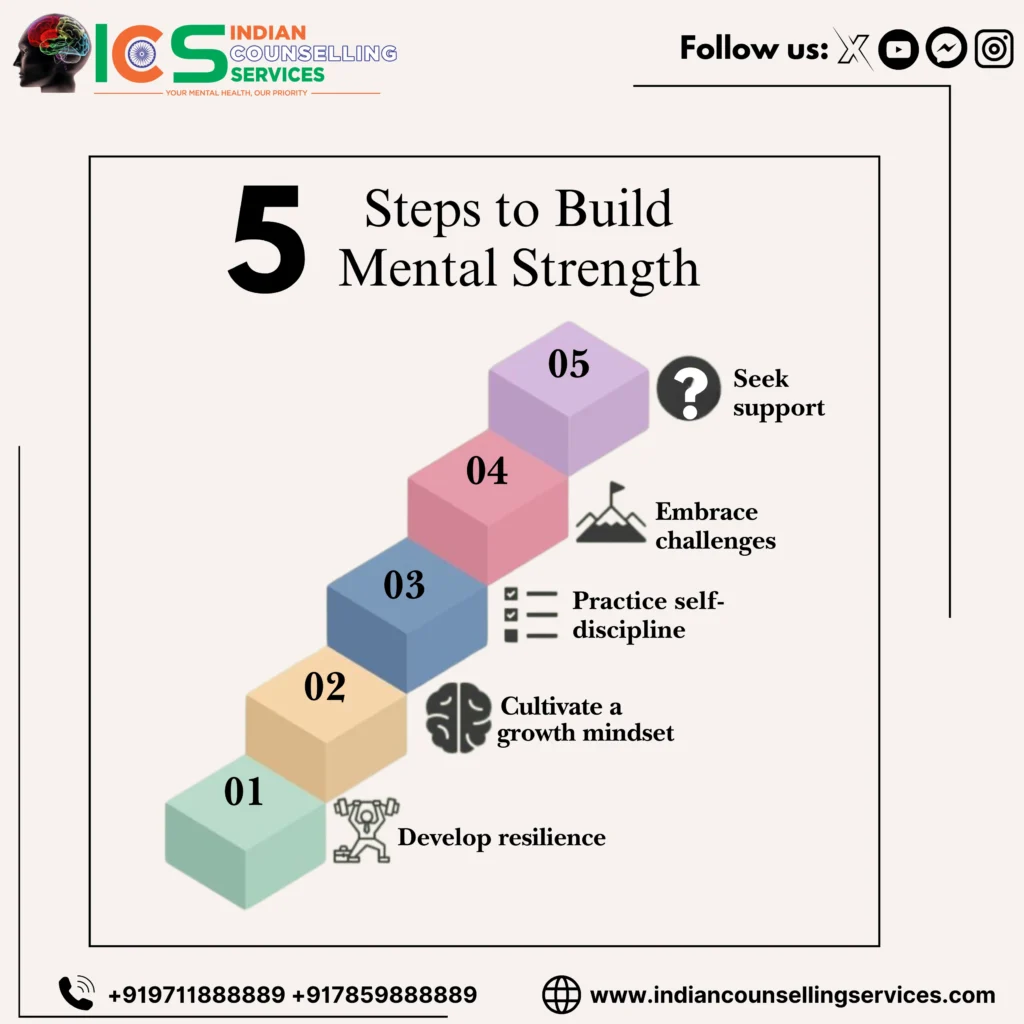
5 Steps to Boost Your Mental Strength Today
In a world that constantly throws new challenges our way, developing mental strength is essential for resilience and personal growth. Mental strength isn’t about ignoring your feelings or pretending everything is fine. It involves building skills to navigate life’s highs and lows with grace and determination. Whether you’re dealing with a difficult situation or striving toward a big goal, these five steps can help you start strengthening your mental resilience today.
Self-awareness is the foundation of mental strength. By understanding your thoughts, emotions, and behaviors, you can identify patterns that either help or hinder your progress. This awareness enables you to make intentional decisions that align with your goals.
How to Enhance Self-Awareness:
- Keep a Journal: Dedicate 10 minutes daily to write about your thoughts and emotions. Reflect on what triggers stress and what brings joy.
- Practice Mindfulness: Spend a few moments each day focusing on your breath and observing your thoughts without judgment. Apps like Headspace or Calm can guide you.
- Request Feedback: Ask trusted individuals for constructive insights into your strengths and areas for improvement.
By paying attention to your inner world, you can lay the groundwork for improved mental resilience.

A growth mindset is the belief that your abilities and intelligence can improve with effort and learning. This outlook fosters resilience and helps you see setbacks as opportunities for growth rather than as failures.
How to Cultivate a Growth Mindset:
- Reframe Challenges: Replace thoughts like, “I can’t do this,” with, “I’m learning and improving every time I try.”
- Celebrate Efforts: Acknowledge your hard work and progress, even if the results aren’t perfect.
- Embrace Feedback: View constructive criticism as a tool for improvement rather than a personal attack.
When you approach life with a growth mindset, you equip yourself to overcome obstacles and reach your goals.
Mental strength flourishes when you take care of your body and mind. Self-care involves making intentional choices that support your overall well-being, enabling you to face challenges with greater resilience.
Effective Self-Care Strategies:
- Get Quality Sleep: Aim for 7-9 hours of rest each night, and establish a calming bedtime routine.
- Eat Balanced Meals: Fuel your body with nutritious food, stay hydrated, and limit sugar and caffeine.
- Stay Active: Regular physical activity boosts mood, reduces stress, and strengthens mental clarity. Even a short walk can be beneficial.
- Set Boundaries: Learn to say no to commitments that drain your energy, and focus on what truly matters.
Incorporating self-care into your routine helps sustain your mental resilience over time.
Emotional regulation involves recognizing and managing your emotions in a way that aligns with your values and goals. It’s not about suppressing feelings but rather processing them constructively.
Tips for Managing Emotions:
- Practice Deep Breathing: Slow, deep breaths can calm your nervous system during stressful moments.
- Identify Your Emotions: Instead of saying, “I’m upset,” try pinpointing the exact feeling: “I feel frustrated because of X.” Naming emotions can reduce their intensity.
- Pause Before Reacting: Take a moment to think before responding to a triggering situation.
- Engage in Healthy Outlets: Use creative activities, exercise, or nature walks to process emotions constructively.
When you master emotional regulation, you’ll feel more in control and capable during difficult situations.
Mental strength isn’t developed in isolation. Surrounding yourself with supportive people can provide encouragement, perspective, and comfort during tough times.
How to Strengthen Your Support Network:
- Stay Connected: Schedule regular conversations with friends or family, even if they’re brief.
- Join Groups: Participate in communities that share your interests, such as fitness classes or hobby groups.
- Be Open: Share your feelings and challenges with trusted people to foster deeper connections and lighten emotional burdens.
- Consider Professional Support: A counselor or therapist can offer expert guidance and coping tools.
Asking for help and building meaningful relationships is a sign of strength, not weakness.
Building mental strength is an ongoing process, but the actions you take today can make a significant impact on your resilience and overall well-being. By enhancing self-awareness, embracing a growth mindset, prioritizing self-care, managing emotions effectively, and cultivating a strong support system, you can face life’s challenges with confidence.
Start small, stay consistent, and celebrate every step forward. With time and effort, you’ll develop the mental resilience needed to thrive in any situation.
